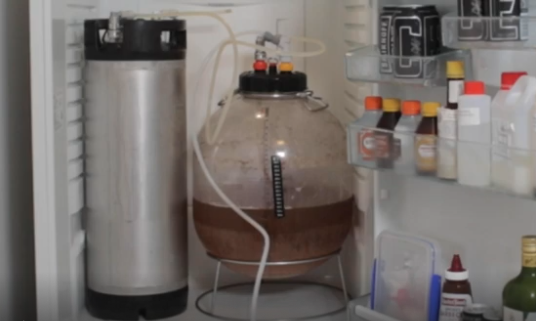Oxygen Free Transfer
Transfer beer to the keg without oxidation.
When we transfer from fermenter to keg we want to avoid contact with oxygen as much as possible. We spent time and money to make the beer, so we want it to taste as good as it possibly can.
“Oxidised beer tastes like a wet dog smells.”
Why use kegs? They are easier to clean, easier to fill, easier to control (quality and serving). Save time, space and ultimately money. Quicker to carbonate and enjoy. Bottles have to be individually cleaned, filled and capped. Then stored while they carbonate (can take 2 weeks)
You can transfer from an air-locked fermenter to keg, but it is more prone to oxygenation.
Why go to this trouble? Oxygen causes oxidation - off flavours (tastes like a wet dog smells) can also be wet cardboard or wet cement.
Fermenting under pressure creates a ‘cleaner’ tasting beer and can partially carbonate the beer.
Equipment
Keg
Fermenter
Hose and fittings to connect the two
CO2 tank with connectors
Beer Line
Beer Connector
Gas Connector
‘Bleeding’ tube
You can use a ‘spunding’ valve to control the flow rate, but setting a low pressure will achieve the same thing.
Could also use a flow stopper, but I found them to be unreliable, especially with foaming, and you can judge from condensation.
The steps
Clean and sanitise all your equipment
StellarClean
StellarSanPurge oxygen from keg - connect gas to ‘out’, set to 5psi
Slowly open the PRV in short bursts
CO2 is heavier than air so it will sink to the bottom and push air out the top
Connect out on keg to out on fermenter
Connect gas to IN on the fermenter
Connect bleeding tube to in on keg
Connect out to out because a dip tube runs all the way to the bottom of the keg and it creates less foaming. Foaming represents wasted gas AND beer.
Turn the gas on to between 4-10 psi, depending on the beer and current amount of carbonation. Heavily carbonated beers should be transferred at lower pressures to avoid foaming.
If the keg is warmer than the beer you can see how last the beer is filling from the condensation
When the keg is full or the fermenter is empty, disconnect the bleeding tube first to stop the process
Turn the gas off and disconnect it from the fermenter
Disconnect the transfer line from the keg and fermenter
Put the keg into your kegerator and finish carbonating it.
